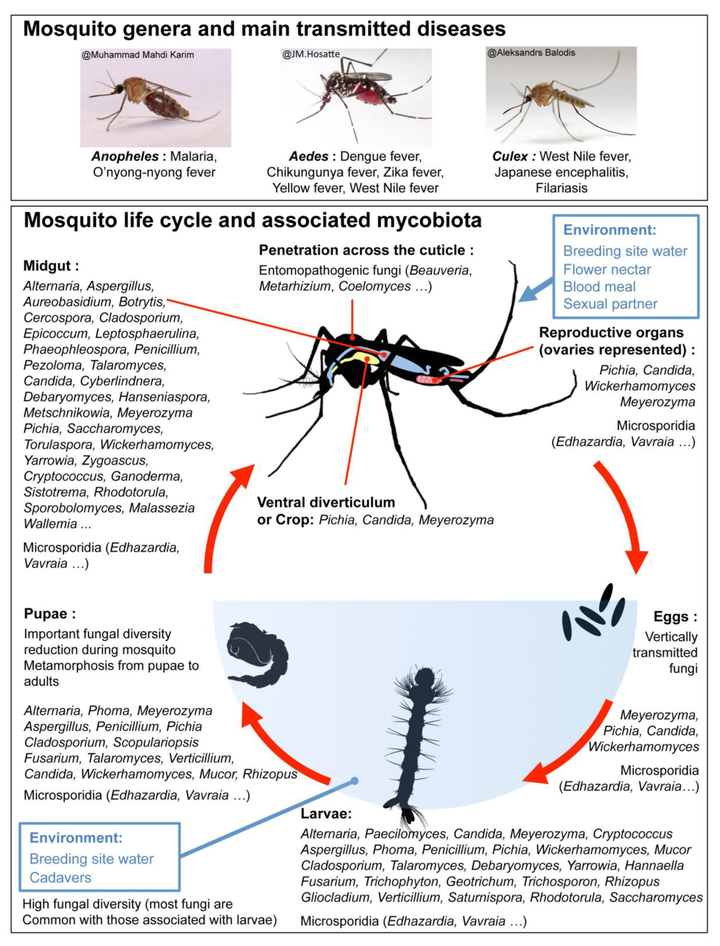
Abstract
The growing expansion of mosquito vectors leads to the emergence of vector-borne diseases in new geographic areas and causes major public health concerns. In the absence of effective preventive treatments against most pathogens transmitted, vector control remains one of the most suitable strategies to prevent mosquito-borne diseases. Insecticide overuse raises mosquito resistance and deleterious impacts on the environment and non-target species. Growing knowledge of mosquito biology has allowed the development of alternative control methods. Following the concept of holobiont, mosquito-microbiota interactions play an important role in mosquito biology. Associated microbiota is known to influence many aspects of mosquito biology such as development, survival, immunity or even vector competence. Mosquito-associated microbiota is composed of bacteria, fungi, protists, viruses and nematodes. While an increasing number of studies have focused on bacteria, other microbial partners like fungi have been largely neglected despite their huge diversity. A better knowledge of mosquito-mycobiota interactions offers new opportunities to develop innovative mosquito control strategies. Here, we review the recent advances concerning the impact of mosquito-associated fungi, and particularly nonpathogenic fungi, on life-history traits (development, survival, reproduction), vector competence and behavior of mosquitoes by focusing on Culex, Aedes and Anopheles species.